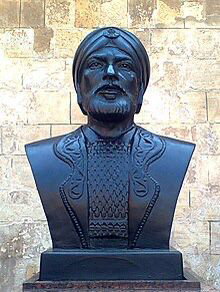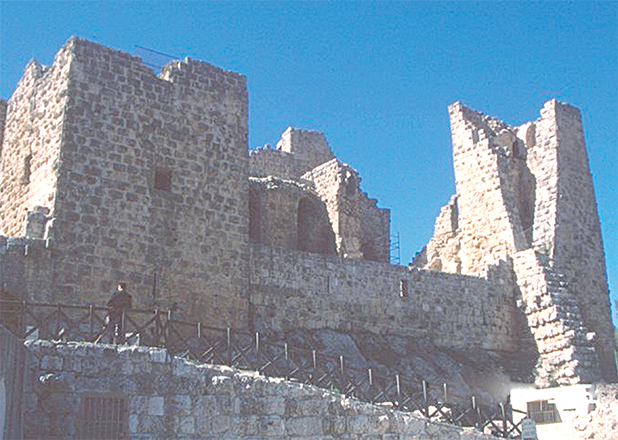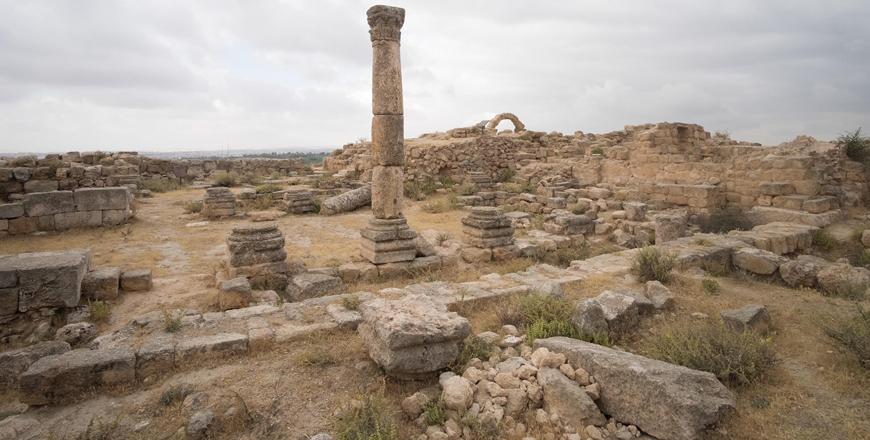You are here
Battle of Ain Jalut: unraveling first Mongol defeat in Western Asia
By Saeb Rawashdeh - Apr 07,2024 - Last updated at Apr 07,2024

Sultan Qutuz bust in Cairo (Photo courtesy of National Military Museum Cairo)
AMMAN — Ginghis Khan (1162-1227) instilled in the Mongol aristocracy the idea of the strong state institutions that would outlive him and guarantee meritocracy necessary for the longevity of the empire. Unlike Huns of Atila the Great, whose invasion did not create a state, the Mongols established political, cultural and economic ties with other regions.
When Mongke Khan became Great Khan in 1251, he began a detailed implementation of the plans of his grandfather Genghis Khan to create a world empire. To lead the task of subduing the nations in western Asia, he selected his brother, Hulagu Khan.
“The Mongols had a decimal system of military organisation, unlike the other mediaeval armies that would just be a big group of heterogenous people; the Mongols had units of 10, 100, 1000 and 10 000 troops,” noted Stephen Pow, a historian and research associate at the University of Calgary in Canada.
Pow’s academic interests are the Mongol Empire, the Mongol-European relations and the Mongol campaign in the Near East.
“Each of these units had their own commander,” Pow continued, noting that command structure was clear and orders were travelling down from the most supreme commanders to the commanders of smaller units.
Because of a clear chain of command, it was very difficult to infiltrate spies that would use the heat of the battle to spread rumours and mislead the army, Pow said.
In the middle of 13th century, the Mongol army already captured Kiev in 1240, took Alamut in 1256 and Baghdad in 1258, deposing and executing the last Abbasid Khalif Mustasim ‘ billah. At that point it seemed that nobody could stop the Mongol invaders whose one flank attacked the central Europe, while the other ravished ‘Bilad Al Sham’.
The consequences of the Mongol campaign affected both urban and rural centres in Syria and northern Transjordan where Ayyubid-Mamluk economy heavily relied on agriculture. The taxes collected off the cereal production in northern Transjordan represented a significant profit for the state. Due to the Mongol invasion and depopulation of rural areas, the interruption of trade and agricultural production occurred and it had a direct negative impact on the economy of the state.
Hulagu Khan managed to subdue Syria in 1260 and his plan was to move westwards towards Cairo, sending envoys to Mamluk ruler of Egypt Qutuz to surrender. Qutuz had different plans regarding surrendering Egypt to the Mongols, so he beheaded Hulagu’s envoys and displayed their severed heard on the Bab Zuweila gate of Cairo. Instead of waiting the invaders in Egypt, Qutuz mobilised his army and went to engage the Mongols in Levant.
Most likely the reason for Mamluk initiative was that Hulagu withdrew the majority of the army to Mongolia, leaving with a Mongol commander Kitbuqa around 10 000 strong troops. At that time Khan Mongke died and historians speculated that Hulagu withdrew the majority of troops because the Mongol princes had to decide who would succeed Monge. Other reason for such a move was the difficulty to sustain so many horses of the Mongol cavalry without enough fodder as well as the Mongol habit of moving to the colder areas during summer heat.
Meanwhile, Kitbuqa was busy sacking Sidon in Lebanon before he met Qutuz forces in Lower Galilee, at the place called Ain Jalut in September 1260. Mamluk army managed to outmanoeuvre the Mongol foes using counter-attacks, led by the general Baibars, and the Mamluks inflicted the defeat to the once invincible Mongol army. During the battle Kitbuqa himself was killed and the Mongol offensive towards Egypt stopped.
The Battle at Ain Jalut was a turning point and the first defeat of the Mongol army in its campaign against Western Asia. The Mamluk army soon recaptured Damascus, Homs and Baghdad while Hulagu Khan remained busy on the other war theatres before he died in 1264 never launching a punitive campaign against the Mamluk state.
Related Articles
AMMAN — During the turbulent period of Crusades, one of the generals of Salaheddin Ayyoubi (1137-1193 AD), Izz Al Din Usama, built in 1184 A
AMMAN — Tell Hisban, located in the Madaba Plains, represents the “granary of the empires”, noted an American archaeologist.The site, coveri
ALEPPO — Before the war, Aleppo's ancient walled citadel drew in armies of visitors to one of the Middle East's greatest treasures.But for t















